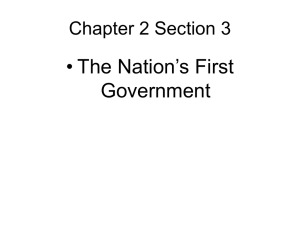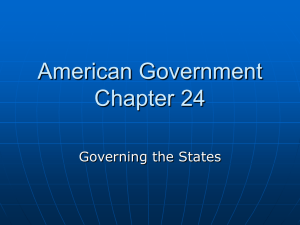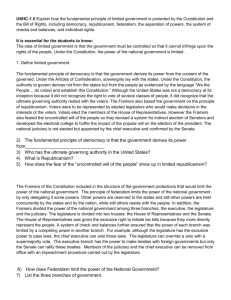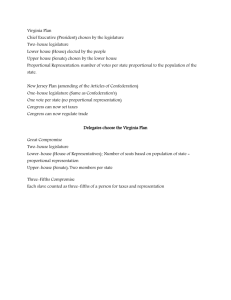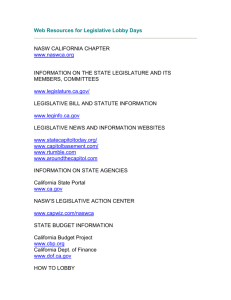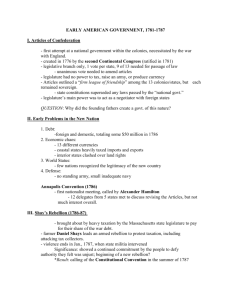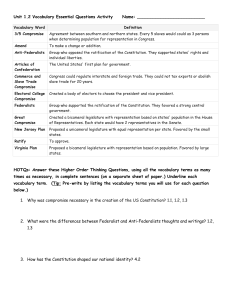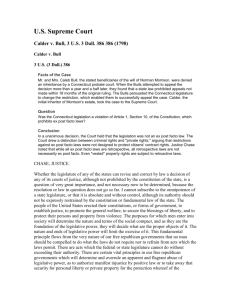Calder v. Bull
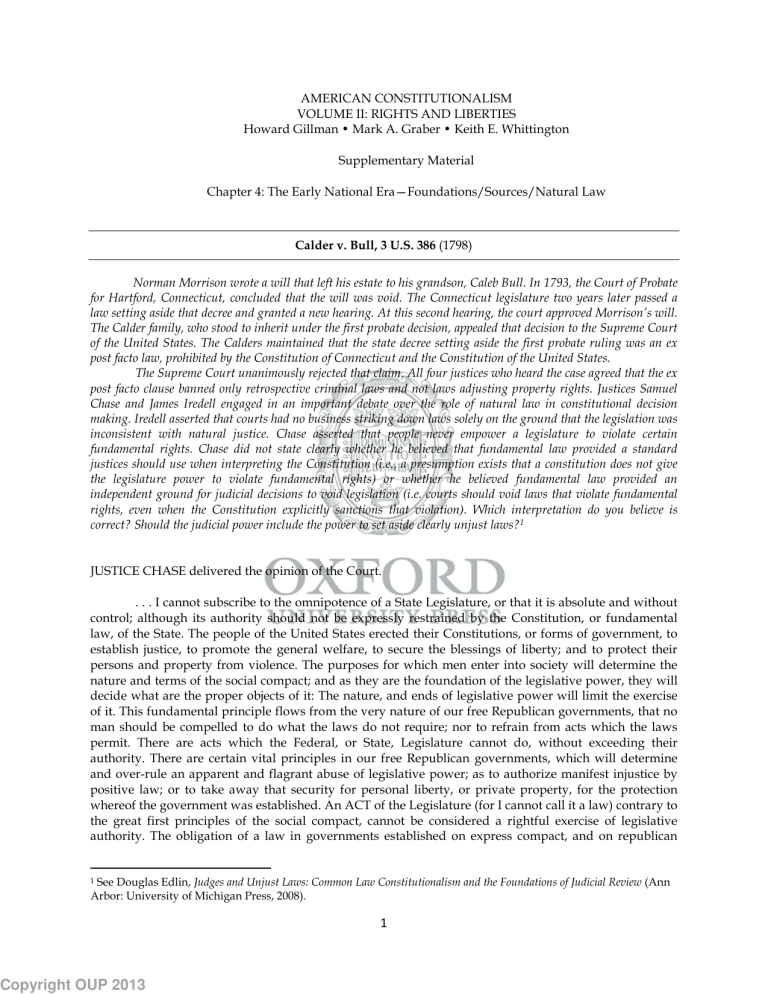
AMERICAN CONSTITUTIONALISM
VOLUME II: RIGHTS AND LIBERTIES
Howard Gillman • Mark A. Graber • Keith E. Whittington
Supplementary Material
Chapter 4: The Early National Era—Foundations/Sources/Natural Law
Calder v. Bull, 3 U.S. 386 (1798)
Norman Morrison wrote a will that left his estate to his grandson, Caleb Bull. In 1793, the Court of Probate for Hartford, Connecticut, concluded that the will was void. The Connecticut legislature two years later passed a law setting aside that decree and granted a new hearing. At this second hearing, the court approved Morrison’s will.
The Calder family, who stood to inherit under the first probate decision, appealed that decision to the Supreme Court of the United States. The Calders maintained that the state decree setting aside the first probate ruling was an ex post facto law, prohibited by the Constitution of Connecticut and the Constitution of the United States.
The Supreme Court unanimously rejected that claim. All four justices who heard the case agreed that the ex post facto clause banned only retrospective criminal laws and not laws adjusting property rights. Justices Samuel
Chase and James Iredell engaged in an important debate over the role of natural law in constitutional decision making. Iredell asserted that courts had no business striking down laws solely on the ground that the legislation was inconsistent with natural justice. Chase asserted that people never empower a legislature to violate certain fundamental rights. Chase did not state clearly whether he believed that fundamental law provided a standard justices should use when interpreting the Constitution (i.e., a presumption exists that a constitution does not give the legislature power to violate fundamental rights) or whether he believed fundamental law provided an independent ground for judicial decisions to void legislation (i.e. courts should void laws that violate fundamental rights, even when the Constitution explicitly sanctions that violation). Which interpretation do you believe is correct? Should the judicial power include the power to set aside clearly unjust laws?
1
JUSTICE CHASE delivered the opinion of the Court.
. . . I cannot subscribe to the omnipotence of a State Legislature, or that it is absolute and without control; although its authority should not be expressly restrained by the Constitution, or fundamental law, of the State. The people of the United States erected their Constitutions, or forms of government, to establish justice, to promote the general welfare, to secure the blessings of liberty; and to protect their persons and property from violence. The purposes for which men enter into society will determine the nature and terms of the social compact; and as they are the foundation of the legislative power, they will decide what are the proper objects of it: The nature, and ends of legislative power will limit the exercise of it. This fundamental principle flows from the very nature of our free Republican governments, that no man should be compelled to do what the laws do not require; nor to refrain from acts which the laws permit. There are acts which the Federal, or State, Legislature cannot do, without exceeding their authority. There are certain vital principles in our free Republican governments, which will determine and over-rule an apparent and flagrant abuse of legislative power; as to authorize manifest injustice by positive law; or to take away that security for personal liberty, or private property, for the protection whereof the government was established. An ACT of the Legislature (for I cannot call it a law) contrary to the great first principles of the social compact, cannot be considered a rightful exercise of legislative authority. The obligation of a law in governments established on express compact, and on republican
1 See Douglas Edlin, Judges and Unjust Laws: Common Law Constitutionalism and the Foundations of Judicial Review (Ann
Arbor: University of Michigan Press, 2008).
1
Copyright OUP 2013
principles, must be determined by the nature of the power, on which it is founded. A few instances will suffice to explain what I mean. A law that punished a citizen for an innocent action, or, in other words, for an act, which, when done, was in violation of no existing law; a law that destroys, or impairs, the lawful private contracts of citizens; a law that makes a man a Judge in his own cause; or a law that takes property from A. and gives it to B: It is against all reason and justice, for a people to entrust a Legislature with SUCH powers; and, therefore, it cannot be presumed that they have done it. The genius, the nature, and the spirit, of our State Governments, amount to a prohibition of such acts of legislation; and the general principles of law and reason forbid them. The Legislature may enjoin, permit, forbid, and punish; they may declare new crimes; and establish rules of conduct for all its citizens in future cases; they may command what is right, and prohibit what is wrong; but they cannot change innocence into guilt; or punish innocence as a crime; or violate the right of an antecedent lawful private contract; or the right of private property. To maintain that our Federal, or State, Legislature possesses such powers, if they had not been expressly restrained; would, in my opinion, be a political heresy, altogether inadmissible in our free republican governments.
JUSTICE IREDELL, concurring in part.
. . .
. . . It is true, that some speculative jurists have held, that a legislative act against natural justice must, in itself, be void; but I cannot think that, under such a government, any Court of Justice would possess a power to declare it so. . . .
. . . [I]t has been the policy of all the American states, which have, individually, framed their state constitutions since the revolution, and of the people of the United States, when they framed the Federal
Constitution, to define with precision the objects of the legislative power, and to restrain its exercise within marked and settled boundaries. If any act of Congress, or of the Legislature of a state, violates those constitutional provisions, it is unquestionably void; though, I admit, that as the authority to declare it void is of a delicate and awful nature, the Court will never resort to that authority, but in a clear and urgent case. If, on the other hand, the Legislature of the Union, or the Legislature of any member of the
Union, shall pass a law, within the general scope of their constitutional power, the Court cannot pronounce it to be void, merely because it is, in their judgment, contrary to the principles of natural justice. The ideas of natural justice are regulated by no fixed standard: the ablest and the purest men have differed upon the subject; and all that the Court could properly say, in such an event, would be, that the
Legislature (possessed of an equal right of opinion) had passed an act which, in the opinion of the judges, was inconsistent with the abstract principles of natural justice. There are then but two lights, in which the subject can be viewed: 1st. If the Legislature pursue the authority delegated to them, their acts are valid.
2d. If they transgress the boundaries of that authority, their acts are invalid. In the former case, they exercise the discretion vested in them by the people, to whom alone they are responsible for the faithful discharge of their trust: but in the latter case, they violate a fundamental law, which must be our guide, whenever we are called upon as judges to determine the validity of a legislative act.
2
